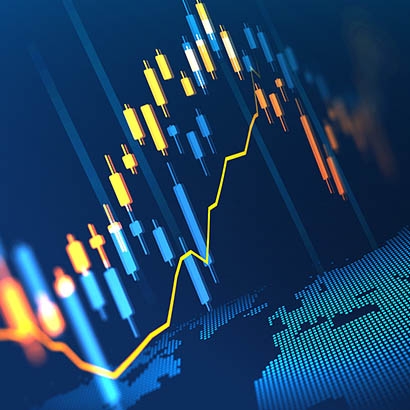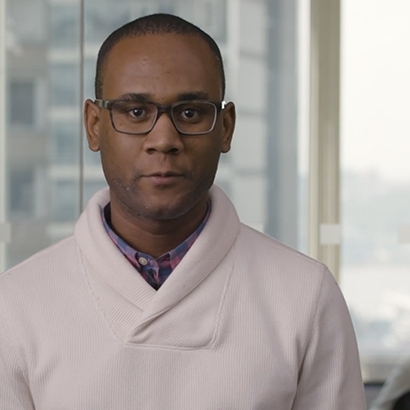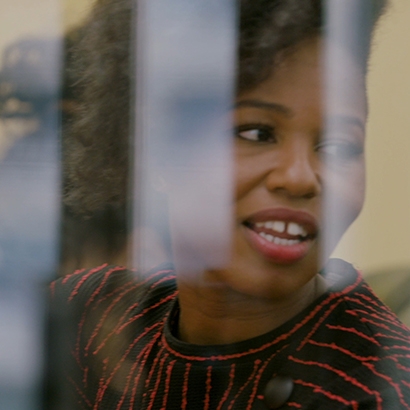Three CEOs from the Multicultural Innovation Lab talk about what they’ve learned and where they want to go.
Starting a company is difficult enough, but owning the role of CEO is something that can take time, as participants in the Multicultural Innovation Lab, Morgan Stanley’s startup accelerator, can attest.
The firm started the Multicultural Innovation Lab in 2017, inviting technology entrepreneurs to work out of our Times Square headquarters. The linchpin of the experience hinges on mentoring. Every company works with dedicated senior leaders across the firm who help coach Lab participants throughout the accelerator program. Meanwhile, Curriculum Days bring professionals from inside and outside the firm to discuss their areas of expertise, rounding out participants’ exposure to a broad range of the knowledge and experience crucial to their strategy, planning and execution.
We sat down with three of this year’s participants to discuss their experiences midway through the Lab, assessing what they’ve learned about running their companies through the content included in the Morgan Stanley program.
SaLisa L. Berrien is Founder and CEO of COI Energy Services, which connects utilities and their business customers to help optimize flexible energy resources.
Modjossorica Elysee is Founder and CEO of BeautyLynk, which provides customers with on-demand beauty professionals at the customer’s desired location.
Lora Ivanova is Co-founder and CEO of MyLabBox, a comprehensive testing-to-treatment platform for sexually transmitted diseases.
Moderator: Curriculum Days are a big part of the Lab experience. Which of the sessions have been most valuable for you?
Berrien: They've all been pretty phenomenal - we recently had a session about understanding your financials and knowing that your financials tell stories. I realized that I had not thought hard enough about the story my financials were telling. The session gave me more insight, at a critical time when I’m about to go out and try to raise a round of funding.
Elysee: My favorite curriculum presentations so far have been around Product Development, Cybersecurity and Legal. Those are all very important issues to me right now, especially with about 26 states changing their regulatory approach to beauty professionals. We are also looking at what it means to build out cybersecurity for our platform and whether or not to outsource that.
Ivanova: I always find things in the curriculum that are surprising lessons, things that I maybe didn't think about. And I particularly enjoy the one-on-ones, which are weekly or biweekly sit-downs with the entire management team at the Lab, where we get a chance to really bring them up to speed on where we are with the company. We talk about some of the challenges we're dealing with, some of the initiatives we're pursuing, and get real-time feedback. I'll either have questions answered or brainstorm ideas, or just a, “Yay, you!” sometimes, which is also very helpful.
Moderator: Let's talk about the role of your mentor at the firm. Who is your mentor, and what has it been like to work with him or her?
Ivanova: Our mentor is Phil Davies, Firmwide Head of Operations. I'm actually about to run off to have lunch with him! It's been wonderful to be paired up with him because he has a very deep understanding of operations, in a way that informs a lot of things that we've been struggling with. He has also been very helpful with helping us navigate additional introductions within the Morgan Stanley umbrella.
Berrien: My mentor is Pete Chung, Head of Growth Equity at Morgan Stanley Investment Management. He has been phenomenal. I was in the middle of raising a round of funding, which was all new to me, so in a mentor, I wanted someone who had fundraising experience. Whenever he thinks of things that would be helpful to me, he just shoots me an email, and he always makes himself available to take calls from me, even if it’s the weekend or he’s out of the country.
Elysee: I have had a wonderful experience with my mentor, Mary Deatherage, who is a Managing Director in Wealth Management. Not only has she been able to help me really think about the bigger picture, she has also helped me interview people I’m considering for my team. As a solo founder, sometimes I just need someone to talk to because it is lonely on my island. So, she has made herself fully available to me, and I'm super happy and excited to continue my relationship with her outside the Lab as well.
Moderator: An important element of the Lab experience is being able to work on site at Morgan Stanley’s headquarters. How has that helped you?
Elysee: I think the fundamental piece of it, of being at the office, is really working with the entrepreneurs in the Lab and having them as a support system. Networking with the Morgan Stanley staff has been wonderful, too.
Ivanova: It’s been particularly great to be surrounded by other entrepreneurs—a lot of whom are female CEOs, a lot of whom are in different stages in business. It creates a sense of a community, as well as a kind of a mastermind group, if you will, of people you can always turn to, to talk things through.
Berrien: I agree and would add that it’s been great to have the opportunity to hold meetings here. When I bring in potential employees and investors, their eyes all get big coming in. It kind of makes us feel like a larger company than we really are.
Moderator: What would you like to learn going forward?
Elysee: Moving forward, one thing I’d really like to improve upon while being at Morgan Stanley is being able to hold better meetings. I’d also like to develop more of a strategic plan rather than managing things tactically.
Ivanova: I want to prepare for our next round of funding. Being an entrepreneur, you start with an idea and then you say, well, I wonder what it would be like to do this thing. And then I had a friend who became my business partner, and we ended up starting this entity together, and before we knew it, we had an actual company on our hands and we were fundraising. We just closed our seed round a few months ago, and now it's time for a much bigger raise, which is going to come with some new challenges. So, really what I want to learn over the rest of my time here is how to do that—how to be that person who's going to walk into a room and ask for a much larger raise like it's nothing.



